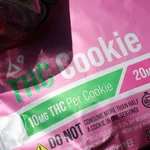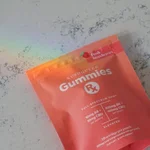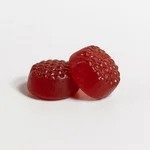Understanding Edibles and THC
Edibles are a popular alternative to smoking marijuana. They are available in various forms, such as gummies, brownies, and chocolates. Edibles contain tetrahydrocannabinol (THC), the main active ingredient in marijuana that produces the “high” sensation.
When you consume edibles, the THC is metabolized in your liver and converted into a compound called 11-hydroxy-THC. This compound is more potent than THC and produces a stronger and longer-lasting high.
Understanding Blood Thinning
Blood thinning is a term used to describe a condition when the blood is unable to clot properly. It can be caused by various factors, such as genetics, medication, and lifestyle choices. Blood thinning can increase the risk of bleeding and bruising, which can be harmful, especially for people with certain medical conditions.
The Connection between Edibles and Blood Thinning
There is limited research on the effects of edibles on blood thinning. However, THC has been shown to have some anticoagulant properties, which means it can interfere with the blood clotting process. This can potentially increase the risk of bleeding and bruising.
It is important to note that the anticoagulant effects of THC are not as strong as prescription blood thinners, such as warfarin. Therefore, it is unlikely that consuming edibles will cause significant blood thinning in healthy individuals.
Factors that Affect Blood Thinning
Several factors can affect blood thinning, including diet, medication, and lifestyle choices. Some foods, such as garlic and ginger, are natural blood thinners and can potentially enhance the anticoagulant effects of THC.
Similarly, some medications, such as aspirin and ibuprofen, can also increase the risk of bleeding and bruising. It is essential to talk to your doctor before consuming edibles if you are taking any prescribed medications.
Lifestyle choices, such as smoking and excessive alcohol consumption, can also affect blood thinning. These habits can increase the risk of bleeding and bruising and can potentially amplify the effects of THC.
Conclusion
In conclusion, there is limited research on the effects of edibles on blood thinning. THC has some anticoagulant properties, but they are not as potent as prescription blood thinners. However, several factors can affect blood thinning, including diet, medication, and lifestyle choices. It is essential to talk to your doctor before consuming edibles, especially if you have any medical conditions or are taking any prescribed medications.
References
- https://www.ncbi.nlm.nih.gov/pmc/articles/PMC2689518/
- https://www.healthline.com/health/does-marijuana-affect-blood-thinning
- https://www.leafly.com/news/health/does-using-cannabis-affect-blood-thinning-medications- https://www.verywellhealth.com/how-does-marijuana-affect-your-blood-bleeding-and-coagulation-4156544












